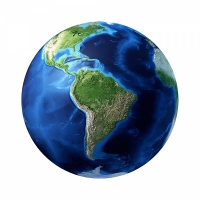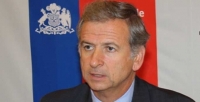General Information
|
|
GDP |
USD240.22bn (World ranking 40, World Bank 2015) |
|
Population |
17.95mn (World ranking 61, World Bank 2015) |
|
Form of state |
Presidential Republic |
|
Head of government |
Michelle BACHELET (Nueva Mayoria Party) |
|
Next elections |
2017, presidential and legislative |
Country Rating A2
|
Strengths
-
Natural resource base. Chile is the largest copper producer in the world, but also benefits from other minerals, forestry and agriculture
-
Strong medium-term growth
-
Pro-business environment
-
Sound macroeconomic policy framework
-
Good external balance
-
Widely accepted, democratic political system with successive peaceful transfers of power
|
Weaknesses
-
Sensitive to commodity prices, particularly copper
-
Skewed income distribution
|
Economic Overview
Low copper price and lack of confidence will keep increase modest
Euler Hermes expects the economy to decelerate to +1.7% in 2016, next +2.3% in 2015. This is an expansion rate far below the 2010-2013 +5.3% average. Exports will continue to suffer as the international price of copper and national production levels remain in negative territory.
The economic slowdown, a controversial reform schedule, the increase of the corporate tax rate from 20% in 2014 to 25% by 2018 and the end of corporate tax breaks have an accumulation impact on business and consumer confidence.
Companies’ local and external financing conditions have deteriorated. On the back of increasing inflation, the Central Bank tightened its monetary policy from February 2015 to February 2016. Meanwhile, the CLP has fallen by -17% against the USD since June 2014. The result was financial distress in some import-oriented sectors.
Sound macroeconomic policies
Chile’s macroeconomic framework enables the country to transaction with the weakness in activity. Monetary policy is a bulwark against inflation and the fiscal balance depends on a structural surplus policy.
Public spending is adjusted to trend revenues. Surpluses are often diverted to a fund that covers minimum pension liabilities and to the Fund for Economic and Social Stabilisation (FEES).
Inflation is anchored to the majority part. Add to that a positive fiscal position and low public deficit (Chile’s public sector is a net creditor). The current account deficit is under control and is almost entirely covered by net FDI flows while foreign exchange reserves provide a comfortable coverage of around 7 months of imports. External liquidity ratios are adequate, external deficit is moderate and payments manageable.
Pro-business environment
In general, Chile enjoys both political stability and a strong business environment, with a well-developed institutional framework. The policy of law and control of corruption are exemplary compared to the regional standards.
According to the World Bank’s Relieve of Doing Business 2016 survey, Chile ranks 57 out of 190 nations. It is the fourth best ranked economy in Latin America. The country performs particularly well in dealing with construction permits and protecting minority investors. Shortcomings remain with regard to paying taxes.

















